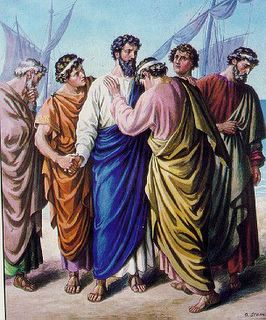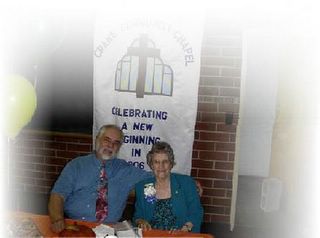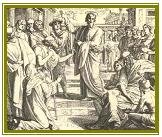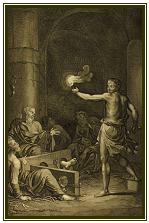One of the most exciting things in ministry is allowing God’s Word to speak over the current and dramatic moments in the life of a church. Our study of the early Church in the Book of Acts parallels our own church building project and that’s exciting because God’s Word really has been coaching us on the real mission of the Church body. (By now, I do hope you know the difference between the two.) Up until now, Luke has been narrating the work of the early Church along with the journeys and ministry of the Apostle Paul. But in Acts Chapter 20, Luke takes a twist and invites us into the heart of Paul the Missionary. It’s an especially poignant and tender passage. It speaks directly to those in ministry even though it applies to all of us. It speaks to the heart of anyone involved in Christian work.
Here’s the situation of the passage. The final dramatic events of Acts are about to happen with the Apostle Paul’s arrest in Jerusalem and his eventual appearance before Caesar in Rome. But on his way to Jerusalem, Paul spends some time with the leaders of the church at Ephesus. He sends for the elders and they meet just outside of Ephesus in a town called Miletus. Here Paul has some final words for them. He knows he will not see them again until they meet in heaven.
Here’s the situation of the passage. The final dramatic events of Acts are about to happen with the Apostle Paul’s arrest in Jerusalem and his eventual appearance before Caesar in Rome. But on his way to Jerusalem, Paul spends some time with the leaders of the church at Ephesus. He sends for the elders and they meet just outside of Ephesus in a town called Miletus. Here Paul has some final words for them. He knows he will not see them again until they meet in heaven.
“You know how I lived the whole time I was with you, form the first day I came into the province of Asia. I served the Lord with great humility and with tears, although I was severely tested by the plots of the Jews. You know that I have not hesitated to preach anything that would be helpful to you but have taught you publicly and from house to house. I have declared to both Jews and Greeks that they must turn to God in
repentance and have faith in our Lord Jesus.” - Acts 20:18-21
These verses are Paul’s summation of his life and ministry in Ephesus. What strikes me here is that Paul was a man sold out for Jesus and driven by a burden for people. His words clearly map-out for us the heart of Christian work and the necessary priorities. Look at the passage again. First: Paul served the Lord… no matter what! And he did it with humility and tears. Second: He did not hesitate to preach anything that would be helpful because building up the Church and reaching the unsaved was indeed the essence of his work. Paul’s needs and desires aren’t even mentioned. They of course came last in the arrangement of priorities. Quite a contrast from the “wisdom” of our day. We’re overrun with views and ideas and guidance on how to take care of “self.” Visit any bookstore and you’ll find an entire section called “Self Help.” Try to find a Bible in the same store. Not quite as big a section for God’s Word. That’s sad.
Back to my opening words: As a pastor it is both amazing and humbling to allow God’s Word to speak over the current and dramatic moments in the life of a church. In a few weeks, we will be in a brand new church building and the Celebration of Christ’s Birth will be upon us. Many will be occupied with details. Don’t let those details cast a shadow on the heart of your work as a Christian. Keep His Word – The Bible - your priority.
-Pastor Mark






